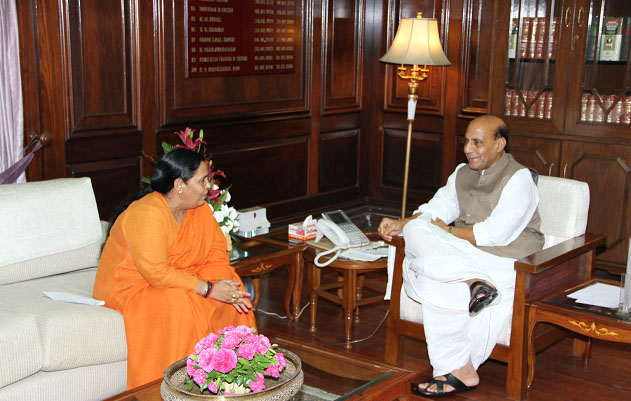The power play behind the Hindi-only move: ‘English phobia’ is one of those lesser-known aspects of the Gujarat model that are now coming to the fore
The situation is slightly improving now but till recently the newsrooms of English newspapers in Ahmedabad would have maybe one or two Gujaratis. Those in charge of recruiting would apologetically say that when it comes to the English language, Gujarat has a talent problem. For a long time, English has not been positively promoted in the state. No wonder this otherwise highly entrepreneurial state missed the infotech boom.
Modi is no exception among Gujaratis when it comes to English. Over 13 years and hundreds of speeches and interactions, one remembers only one press briefing – way back in 2004, when Modi harped for a year on how Gujarat was becoming the ‘petro capital’ of the country, before taking up some other hobby horse – when he replied to media queries in English, albeit in one-liners that seemed pre-programmed.
Thus, when English-language TV talk shows want someone to represent the Gujarat government viewpoint, they have a choice among maybe two politicians. Those two may not even be in political circulation, but you have to make do with them.
This, by the way, is in contrast to political leaders from other states who may not be from the English-speaking elite, who may be carry a more earthly image, who speak English with a thick accent but all the same deliver a syntactically sound quote (think of Lalu Prasad.)
This ‘English phobia’ is one of those lesser-known aspects of the Gujarat model that are now coming to the fore. The home ministry has asked bureaucrats to use Hindi on the social media, and DMK chief Karunanidhi is the first to speak out against it. The move is restricted to the semi-formal world of the social media; as the constitution has defined official languages for the union and the states for formal, official communication.
It is merely a coincidence that at 42.2 crore (2011 census) the number of Hindi speakers would have the proportion to the total population that is close to the proportion of votes the BJP has got. In other words, the Hindi heartland is in, but the rest where the BJP presence is weak will have to rush to get crash courses in Hindi.
No doubt, a case can be made for promoting Hindi. There is indeed a whole department in the home ministry mandated with this task. The use of Hindi, instead of English, can be a matter of self-pride, and many would gladly recall Atal Bihari Vajpayee’s UN speech in 1977.
The Sangh fringe would see this as only a first step towards promotion of Sanskrit. But the fact remains that a majority of Indians will feel left out, will feel what you feel when two other people in your company start speaking among themselves in a language that you cannot understand. Since the whole world is watching India, and Modi is expected even by global experts to shape world trends, the Hindi-only diktat would also leave out a large constituency of India watchers abroad.
This feeling of being left out of a conversation provoked the creation of the only human-made language that has survived and prospered: Esperanto. The philosophy of Esperanto is this: in any communication between people whose mother tongues are different, there is bound to be a power equation. Either I learn your language or you learn mine. The third way, proposed by Esperanto, is let me be your host, I will take a step towards you, and also give you a chance to be my host.
In matters of language, it is a choice between (a) being a gracious host to the other and (b) being proud of oneself and imposing one on the other. Between give-and-take and parochial power show. The Hindi-only directive shows how the Idea of India is going to be rewritten over the next five (or more) years.

